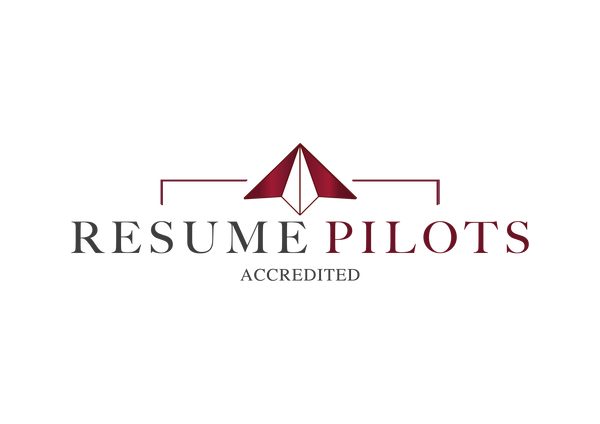
How to Leverage the STAR Method to Ace Interviews
Examples of Behavioral Interview Questions and STAR Interview Responses
If you've been researching interview preparation techniques, you have heard of behavioral interviews.
The primary reason behavioral interview questions are so popular is that past performance is likely to be a strong predictor of how you will perform in the future.
In other words, recruiters want to know how you reacted to certain situations on the job in the past to help them determine whether you would respond appropriately in the role if you were hired.
The STAR method helps you answer these situational interview questions in a structured, coherent manner while providing concrete examples of why you would make a good contributor.
What are examples of behavioral interview questions?
You'll know you're being asked a behavioral-based question if you need to draw upon examples from your past to answer it.
Examples of behavioral interview questions include:
- Can you tell me about a time when you fell behind on project with a tight deadline?
- Have you ever had to work with other departments on a major initiative?
- What is an example of an instance where you had to handle a tricky situation with a client?
- Can you describe a way in which you would handle an underperforming employee?
- How do you respond when you receive negative feedback?
- Can you tell me about a time when you leveraged data to inform business decisions?
How does the STAR method help?
The STAR method is a proven structure for answering any behavioral interview question.
While behavioral questions are often open-ended, both the structure and content of your response can provide insight into your fit for a role.
Your answers demonstrate both how you would behave on the job as well as your thought process and ability to think clearly under pressure.
While you can't predict (or prepare for) every question you might be asked, having a good arsenal of stories to draw upon will improve your confidence and interview performance.
How do I apply the STAR method?
STAR is an acronym for:
Situation
Task
Action
Result
When you are asked a behavioral question, you should answer it using a specific example that allows you to address each of the following four components:
1) Situation
First, describe a situation you were faced with at work that relates to the question at hand.
Let's consider the following question:
Can you describe a time when you had to resolve a customer issue that was caused by company error?
Let's think about how a manager of a luxury hotel might answer this question.
To describe his situation, the manager could say something like:
When I was the General Manager of the Peninsula Hotel in Chicago, I was working the night shift and the hotel was overbooked.
A couple booked a weekend stay at the hotel and their flight arrived late. When they arrived at the hotel, their room was no longer available.
2) Task
After explaining the situation, describe the specific task you had to accomplish.
If you referred to a project that was a group effort, what was your individual contribution?
In our example, the candidate might say:
I needed to keep the guests calm and quickly find an alternative hotel for them to stay at.
3) Action
Outline the action you took to resolve the situation.
This portion of your response will be the longest and most detailed, as you need to clearly explain how you responded to the situation and accomplished the task at hand.
In the hotel manager's case, he would describe the specific steps he took to find an alternative hotel and keep the couple calm:
First, I apologized and explained that the hotel was overbooked.
I empathized with the couple and acknowledged that they must already be tired at the end of a long day.
Then, I admitted that we were at fault for this situation and promised we would quickly find them an alternative room for the night, call them a cab, and pay for their accommodation and meal costs for the weekend.
While they waited, I asked the couple if they would like to join us at the bar for a drink.
When we reached capacity earlier in the day, I called the Four Seasons hotel located down the street and spoke to their front office manager to ask whether they had an additional room available.
As a result, the staff was already aware that we may need to book a last-minute room at their property for the affected guests.
Because I was able to anticipate how we would handle the situation, the couple was on their way to the new hotel within half an hour and even thanked us for our hospitality.
4) Result
Lastly, explain the result of the actions you took.
In this portion of your response, tie your actions back to the original question:
Can you describe a time when you had to resolve a customer issue that was caused by company error?
The general manager might say:
I was able to resolve this issue in an effective way, as both my hotel and the couple were happy in the end.
The hotel was able to preserve its high-end reputation and avoid any negative backlash on social media and review sites.
The couple received a free weekend stay, and because of our effective service recovery, they booked another stay with us two months later.
How can I prepare for behavioral questions in advance?
The best way to prepare for behavioral interview questions is to reflect on your past work experiences and think about specific challenges you had to address.
By having a collection of stories to draw upon, you will be able to adapt them to a variety of questions you might encounter.
Once you have your examples ready, research some of the most common interview questions and practice answering them.
You can practice your answers by recording your responses, with a friend, or with a career coach.
When you're comfortable that you 1) have enough stories to draw from and 2) can adapt them to the STAR format, you should feel comfortable walking into the interview!
What are the most common behavioral interview mistakes?
As you’re preparing, keep the following mistakes that candidates often make when answering behavioral questions in mind:
1) Being too vague
If you vaguely describe a situation without providing any details, the interviewer may assume that you are making up a generic story on the spot.
When you discuss situations, be sure to paint a picture for the interviewer. They should be able to envision the situation you’re describing.
If you’re referring to a project, be specific! Tell them what the project was related to and what the expected deliverables were, for example.
If you are speaking about a conflict that occurred when working in a group, provide enough detail on exactly what the conflict was. Don’t simply refer to it as “the conflict.”
2) Including too many irrelevant details
On the other hand, you should only mention details that are relevant to your main point.
When you refer to a project, you don’t have to walk the interviewers through the entire process step-by-step. The last thing you want to do is lose their attention, interest, or focus.
3) Choosing an example that does not apply to the question asked
Oftentimes, interviewees panic and feel the need to start responding to a question immediately.
Remember that it’s okay to ask for a minute to think, if needed.
If you start speaking before taking a moment to compose your thoughts, you may discover that the example you started to explain doesn’t directly answer the interviewer’s question.
Take a moment to think through each element of your STAR response before you start speaking.
While these 15-20 seconds of silence can feel like an eternity in the moment, you'll be able to deliver a clearer, more impactful response by taking the time to structure your answer.
To find out more, visit our website www.resumepilots.com. If you have any further questions, you can either book a consultation call with one of our team, or get in touch via email on team@resumepilots.com

Additional Reading
For more interview preparation tips, check out our articles on:
- Top Questions To Ask During an Interview
- How to Prepare for a Zoom Interview
- How to Optimize Your Job Search to Land More Interview
- 6 Reasons You Aren't Getting Interviews
If you need help preparing for interviews, consider working with a career coach. Our team can assist with interview preparation and conduct mock interviews.
